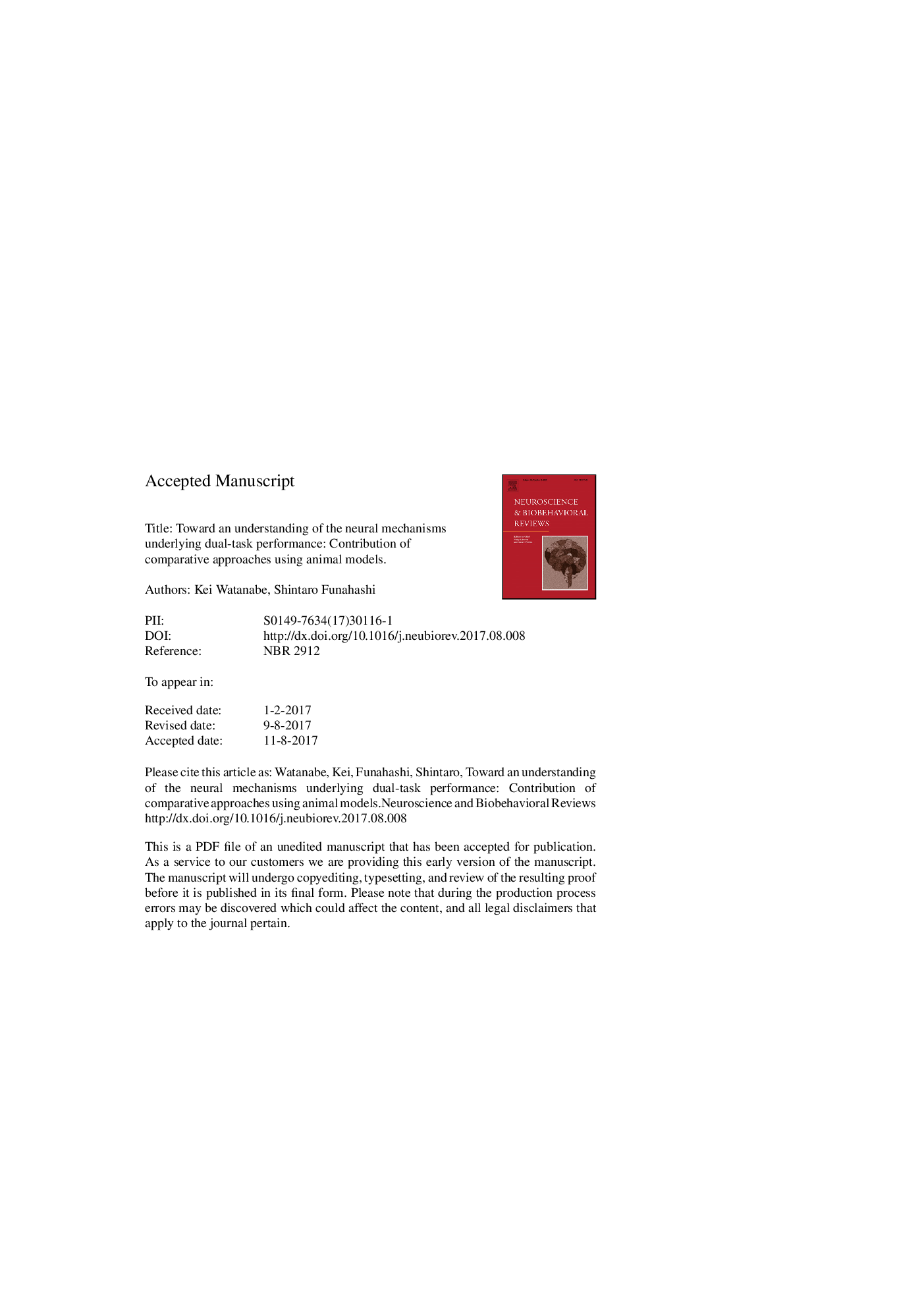| Article ID | Journal | Published Year | Pages | File Type |
|---|---|---|---|---|
| 7302163 | Neuroscience & Biobehavioral Reviews | 2018 | 93 Pages |
Abstract
The study of dual-task performance in human subjects has received considerable interest in cognitive neuroscience because it can provide detailed insights into the neural mechanisms underlying higher-order cognitive control. Despite many decades of research, our understanding of the neurobiological basis of dual-task performance is still limited, and some critical questions are still under debate. Recently, behavioral and neurophysiological studies of dual-task performance in animals have begun to provide intriguing evidence regarding how dual-task information is processed in the brain. In this review, we first summarize key evidence in neuroimaging and neuropsychological studies in humans and discuss possible reasons for discrepancies across studies. We then provide a comprehensive review of the literature on dual-task studies in animals and provide a novel working hypothesis that may reconcile the divergent results in human studies toward a unified view of the mechanisms underlying dual-task processing. Finally, we propose possible directions for future dual-task experiments in the framework of comparative cognitive neuroscience.
Keywords
Related Topics
Life Sciences
Neuroscience
Behavioral Neuroscience
Authors
Kei Watanabe, Shintaro Funahashi,
